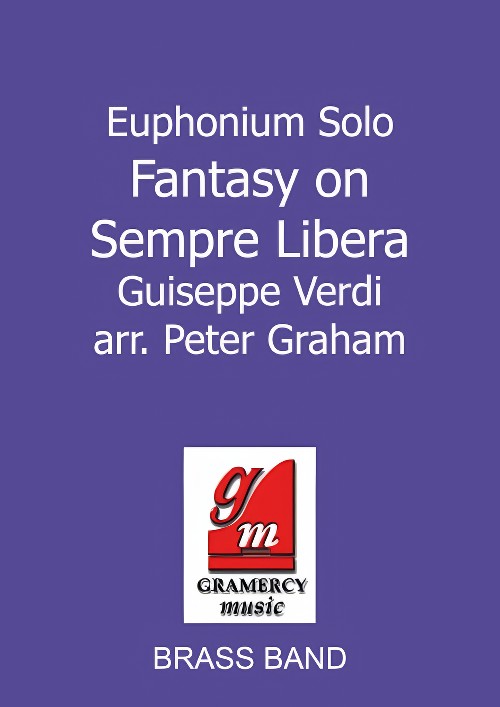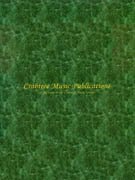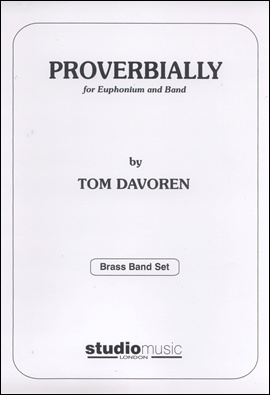Results
-
 £21.50
£21.50ENTERTAINER, THE (Euphonium Duet and Brass Band) - Joplin, Scott - Fretwell, David
This classic rag has been arranged here for Euphonium Duet with Brass Band accompaniment. A great way to feature your Euphoniums!
Estimated dispatch 7-14 working days
-
 £44.95
£44.95Fantasy on Sempre Libera (Euphonium Solo with Brass Band - Score and Parts) - Verdi, Giuseppe - Graham, Peter
During the 19th century the great instrumental virtuosi reined supreme. Pianists Liszt and Thalberg and violinists Paganini and Saraste amazed audiences with their wide-ranging technical and artistic abilities, fuelled by increasingly difficult paraphrases and variations on popular tunes of the day.The Fantasy on Sempre Libera looks back with affection to this period and provides an opportunity for present day euphonium virtuoso David Thornton to demonstrate the skills which mark him out as one of the world's finest players.
Estimated dispatch 7-14 working days
-
 £57.50
£57.50GO THE DISTANCE (Euphonium/Brass Band) - Stowell, David
from Disney's Hercules. Baritone/Euphonium Solo & Brass Band. Duration: 3:00 Grade: Medium
Estimated dispatch 7-14 working days
-
 £26.50
£26.50GRANDFATHER'S CLOCK (Euphonium/Brass Band) - Doughty, George
Euphonium & Brass Band. Please note: There are no percussion parts in this piece. Recorded on Polyphonic QPRL050D Harry Mortimer - A Tribute in Music
Estimated dispatch 7-14 working days
-
 £54.20
£54.20LA CUCARACHA (Euphonium/Brass Band) - Barry, Darrol
Euphonium Solo & Brass Band. Grade: Medium
Estimated dispatch 7-14 working days
-
 £50.90
£50.90LORD'S PRAYER, The (Euphonium/Brass Band) - Wilkinson, Keith M.
Euphonium Solo & Brass Band. Grade: Easy
Estimated dispatch 7-14 working days
-
 £42.95
£42.95O HOLY NIGHT (Euphonium/Brass Band) - Small, Tony
Euphonium & Brass Band
Estimated dispatch 7-14 working days
-
 £37.95
£37.95PANIS ANGELICUS (Cornet, Euphonium or Trombone/Brass Band) - Franck, Cesar - Wright, Frank
Solo for Cornet, Euphonium or Trombone with Brass Band
Estimated dispatch 7-14 working days
-
 £54.20
£54.20PRELUDE AND SCHERZO (Horn or Euphonium Solo with Brass Band) - Lorriman, Howard
Eb/F Horn or Euphonium/Baritone Solo. Grade: Medium.
Estimated dispatch 7-14 working days
-
 £64.95
£64.95PROVERBIALLY (Euphonium/Brass Band) - Davoren, Tom
Proverbially is a concertino for euphonium and brass band. The piece is structured in three individual movements, each around 3 minutes. Each movement is based on a particular modern proverb: Between the Lines; Red Sky; A Stitch in Time. Duration: 8:15
Estimated dispatch 7-14 working days
